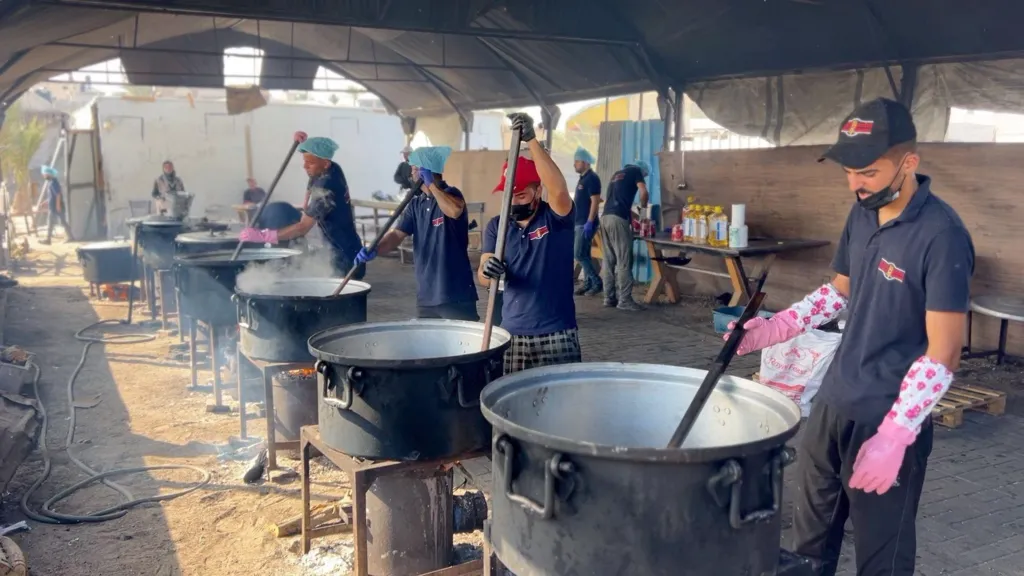A hot meal is hard to come by in the Gaza Strip, but a lunch for needy families in the south is about to be delivered by donkey and cart.
Today's dish is koshari – made with lentils, rice and a zesty tomato sauce – in a set of huge cooking pots in one of two community kitchens run by American Near East Refugee Aid (Anera), a US-based humanitarian organisation.
"People rely on our meals; they have no source of income to buy what's left in the local markets and many foods are not available," says Sami Matar, who leads the Anera team.
"In the past we used to cook rice with meat – with protein. Now, because of the closure, there's no type of meat, no fresh vegetables."
Two months after Israel cut off all supplies from entering Gaza, Mr Matar is warning that the few dozen remaining food kitchens are set to close in days.
"The coming days will be critical. We expect we have two weeks' supply, maybe less."
On 2 March, Israel shut all crossings to Gaza – preventing all goods, including food, fuel and medicines from entering – and resumed its military offensive two weeks later, ending a two-month ceasefire with Hamas. It said these steps were meant to put pressure on Hamas to release the hostages it still holds.
Recently, the UN's World Food Programme and Unrwa, the UN agency for Palestinian refugees, said they had used up all their stocks of food aid.
There is growing international pressure on Israel to lift its blockade, with warnings that mass starvation could be imminent and that intentionally starving civilians is a war crime.
"Aid, and the civilian lives it saves, should never be a bargaining chip," the UN's humanitarian chief, Tom Fletcher, warned on Thursday.
"Blocking aid starves civilians. It leaves them without basic medical support. It strips them of dignity and hope. It inflicts a cruel collective punishment. Blocking aid kills."
Hundreds of thousands of Gazans depend on a few dozen remaining kitchens for sustenance. The one run by Anera in Khan Younis feeds some 6,000 people a day.
But if Israel does not lift its blockade, by far the longest it has ever imposed on Gaza, the kitchens – a last lifeline for so many – will soon have nothing to distribute. Food stockpiled during the ceasefire at the start of this year, has all but run out.
"We used to receive more than 100 trucks every week – trucks of food parcels and hygiene kits. Now we don't have anything," Mr Matar says as he shows a local BBC journalist around the vast, empty Anera warehouse.
"We struggle to provide food such as rice, lentils, pasta, cooking oil and salt, for our community kitchens. It's very expensive to buy 1kg of wood and we need over 700kg a day for cooking."
Israel has accused Hamas of stealing and storing humanitarian aid to give to its fighters or sell to raise money. The UN and other agencies deny aid has been diverted and say that they have strict monitoring mechanisms.
"We work hard to avoid any interference from any parties. We have an accurate and strong distribution process," says Mr Matar, inspecting lists of aid recipients on his computer.
"We have a database of hundreds of thousands of people, including their names, ID numbers and addresses – the co-ordinates of the camps. This avoids duplication with the work of other non-governmental organisations and ensures transparency."
This week, aid workers have said there were five cases of looting at warehouses and the main Unrwa complex in Gaza.
A UN official said it was a sign of people's growing desperation and "systemic collapse".
